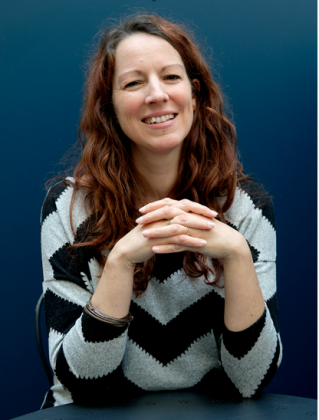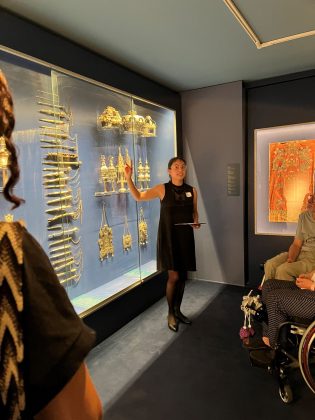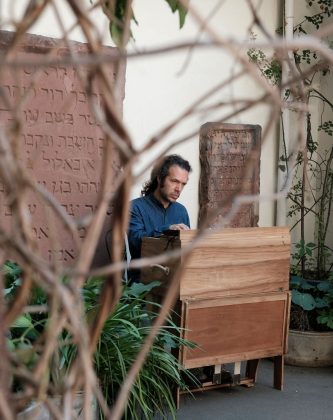Interview with Barbara Haene, Head of research and events at the Jewish Museum of Switzerland

Jguideeurope: What events are planned for the European Days of Jewish Culture?
Barbara Haene: The Jewish Museum of Switzerland has been in charge of the organization of the European Days of Jewish Culture in Switzerland since its initiation in 1999. There is a varied program at the museum this year. For example, a “show cooking” where the challa is cooked, or an event where an art expert evaluates Jewish cult objects live. The city tour “In Herzl’s footsteps through Basel” and the guided tour of the synagogue are also very popular every year.
Can you introduce some of the objects in the “Jewish for beginners and experts” exhibition?
As a historian working on the Jewish history of Switzerland, I of course have certain preferences. I particularly like objects that bear witness to the simple life of the Jews in the Endingen Lengnau countryside, for example a Torah coat originally used for a woman’s dress.

Or a pocket watch from La Chaux-de-Fonds that testifies to the importance of Jews in the watchmaking industry in Switzerland. Of course, the first Zionist Congress, which celebrates its 125th anniversary this year, is also of great importance for Basel’s Jewish history. The Jewish Museum holds numerous objects relating to the first Zionist Congress. For example, a collotype showing the participants of the congress is worth seeing.
Have you noticed a change in public expectations in recent years?
Over the last few decades, the knowledge of young people has changed. They used to be relatively familiar with the biblical stories, especially the ones concerning Adam and Eve, Moses and the Ten Commandments, Rachel and Leah. They knew the Old Testament characters from church, from religion classes, or from their children’s Bibles. Today, secularization has greatly increased.
Few young people visit churches. Almost no one reads the Bible either. But today, those same young people know more about Jewish customs. They know about Hanukkah and Shabbat, about bar / batmitzva holidays and about kosher regulations.

Diversity is in vogue. Young people encounter Jewish culture in school, on Netflix and Youtube, in pop music and in food. Their knowledge of Judaism is marked by hummus, falafel and bagels, among other things.
Can you tell us about an encounter with a visitor or speaker at a cultural event that made a particular impression on you?
A few weeks ago, we welcomed Rabbi Bea Wyler to the museum. We have her prayer shawl, her talith, in our collection. Bea Wyler was the first woman to serve as a rabbi in German-speaking Europe after the Holocaust. When she was ordained in the 2000s, she was confronted with many opposing currents as a woman in an all-male profession.
Today, she is the first in a series of young female rabbis. Women are valued, enjoy a certain prestige and are only experiencing headwinds in some Orthodox and ultra-Orthodox circles.